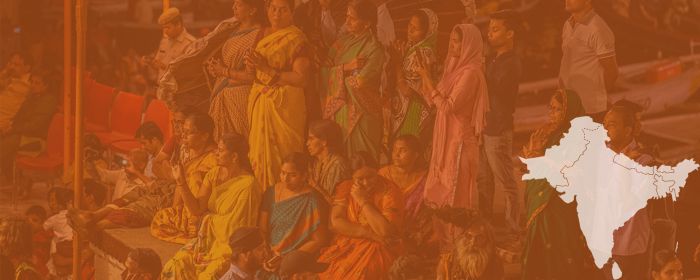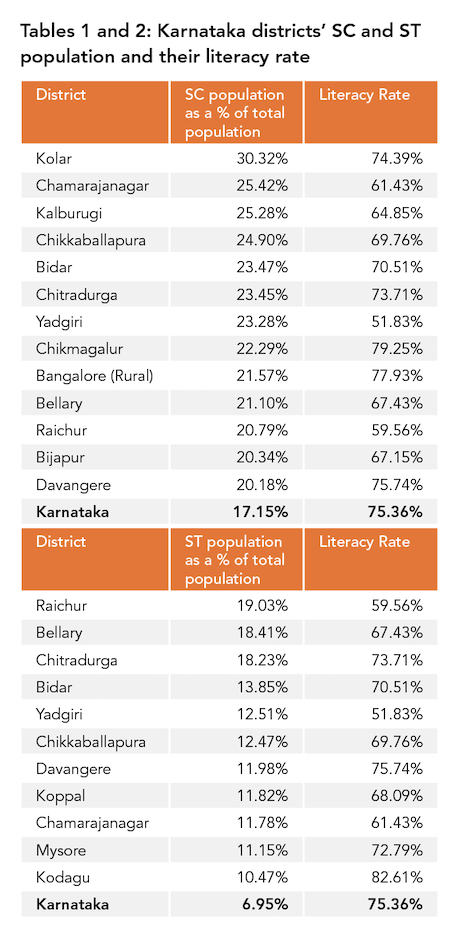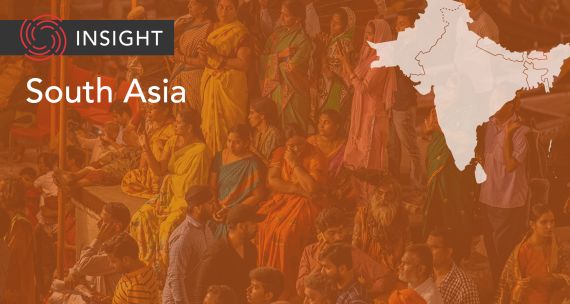The Takeaway
Karnataka’s state government is set to increase access to educational institutions and public sector organizations for people belonging to socioeconomically disadvantaged groups. The affirmative action policy, commonly known in India as “reservations,” comes months ahead of the state assembly elections and is indicative of the ruling Bharatiya Janata Party (BJP) government’s strategies and aims for the 2024 general elections.
In Brief
Karnataka, the only state in southern India under a BJP government, received the state governor’s assent on October 23 to increase the proportion of seats reserved in educational institutions and public sector jobs for marginalized and disadvantaged communities. These communities are officially called Scheduled Castes (SCs), or Dalits, and Scheduled Tribes (STs), or Adivasis (Indigenous people). The quota for SCs will be increased from 15 to 17 per cent, and from three to seven per cent for STs. The legislature is likely to discuss the ordinance when it assembles this December, since it would lead to a majority of the seats being reserved for backward castes, classes, and tribes.
Implications
1. Population and socioeconomic status
The ordinance to increase the reservation proportions is based on the recommendations of the Nagamohan Das committee’s 2020 report. It underscores two issues: first, that the existing reservation of 18 per cent of seats for SC and ST communities does not reflect the increase in the proportion of SCs and STs. The communities currently form 24 per cent of Karnataka’s total population, a six per cent increase since 2001. Second, the socioeconomic status of SCs and STs has lagged when compared to that of other communities, such as in the case of literacy rates. Aside from some exceptions, Karnataka districts where the population of SCs as a percentage of the total district population is more than 20 per cent and the population of STs is over 10 per cent tend to score below the state average in terms of literacy.
2. Electoral math
There is also electoral math at play as the state goes to the polls next year. The BJP emerged as the single largest party in the 2018 state assembly elections by winning 104 out of 224 seats, including winning about 41 per cent of the constituencies reserved for SCs and STs. The increase in the reservation can be seen as a way to attract the marginalized communities’ votes for the BJP in greater numbers, both regionally and nationally.
3. Demand from the communities themselves
Disadvantaged caste and tribal communities in Karnataka such as the Kurubas, Panchamasali Lingayats, and the Valmikis have been agitating over the years for an increase in the reservation, including by staging hunger strikes. With a large population, these communities have been able to apply significant political pressure on the state government.
What's Next
- The decision will take the total reservation percentage in Karnataka to 56 per cent, with the Other Backward Classes (OBCs) receiving 32 per cent of the quota. The increase, hence, will result in a violation of a Supreme Court of India order that capped the reservation percentage for all states to 50 per cent, inviting a possible legal challenge. The 50 per cent cap has been a controversial issue in other states, including Maharashtra, Haryana, and Tamil Nadu, which have exceeded the cap in the past.
- The increase in reservation proportions could open the floodgates for various other communities in Karnataka to demand inclusion in the SC/ST categories.
- If the increase in reservation leads to positive results for the BJP electorally, it could also be used by the Hindu nationalist party as a template in other states where they are in power to influence the voter base and also, possibly, to change the sub-regional socioeconomic dynamics of the disadvantaged communities.
• Produced by CAST’s South Asia team: Dr. Sreyoshi Dey (Program Manager); Narayanan (Hari) Gopalan Lakshmi (Analyst).





